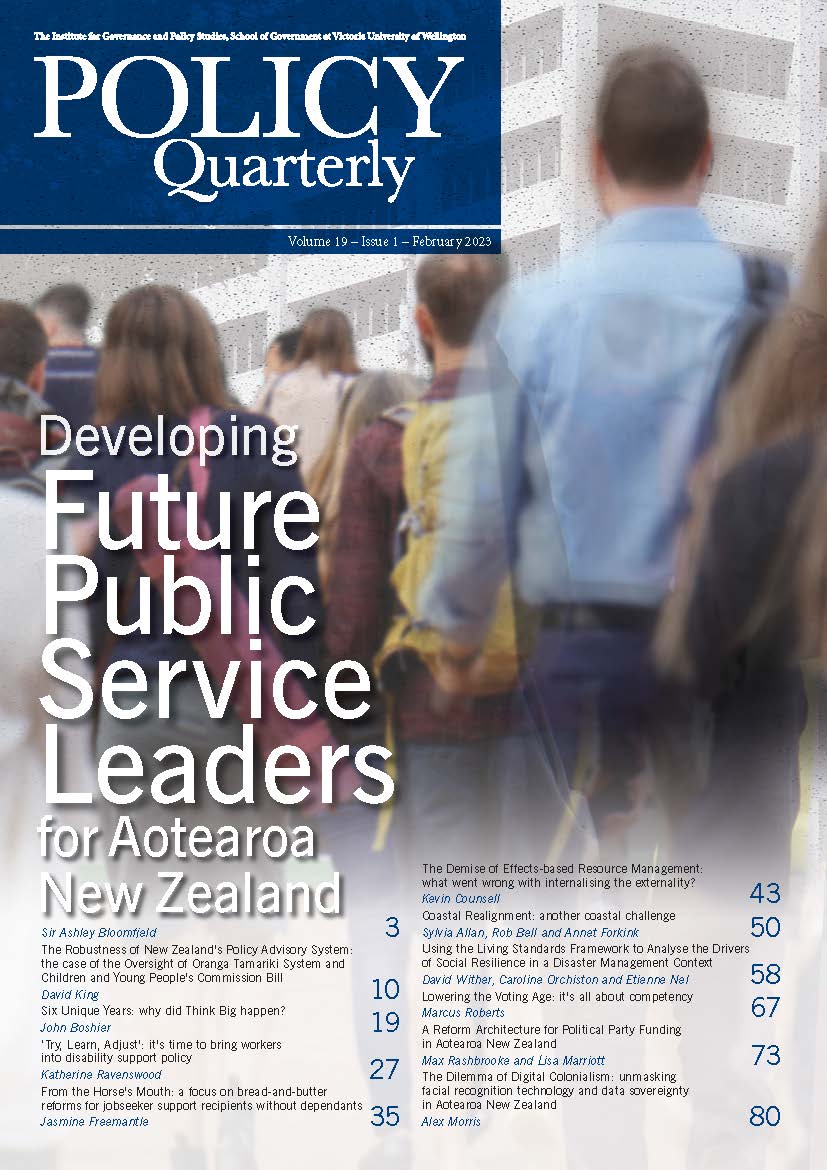Using the Living Standards Framework to Analyse the Drivers of Social Resilience in a Disaster Management Context
DOI:
https://doi.org/10.26686/pq.v19i1.8106Keywords:
Resilience, Disaster management, Wellbeing, Measurement, Multi-capital frameworksAbstract
Resilience concepts now underpin the global strategic approach to risk mitigation. However, operational challenges have emerged which stem from problems with measurement. Many key drivers of social resilience are intangible and difficult to measure, which can result in their exclusion from consideration in institutional decisionmaking structures. Drawing upon a case study – the Hurunui district – which recently experienced multiple adverse events, we argue two points. First, disaster management outcomes can be improved by better accounting for intangible factors in decision making processes. Second, the Living Standards Framework, and the capital concepts embedded within it, provide a solid foundation for systematically categorising intangible factors and rendering them visible to policymakers.
Downloads
Downloads
Published
Issue
Section
License
Permission: In the interest of promoting debate and wider dissemination, the IGPS encourages use of all or part of the articles appearing in PQ, where there is no element of commercial gain. Appropriate acknowledgement of both author and source should be made in all cases. Please direct requests for permission to reprint articles from this publication to Policy-Quarterly@vuw.ac.nz.



